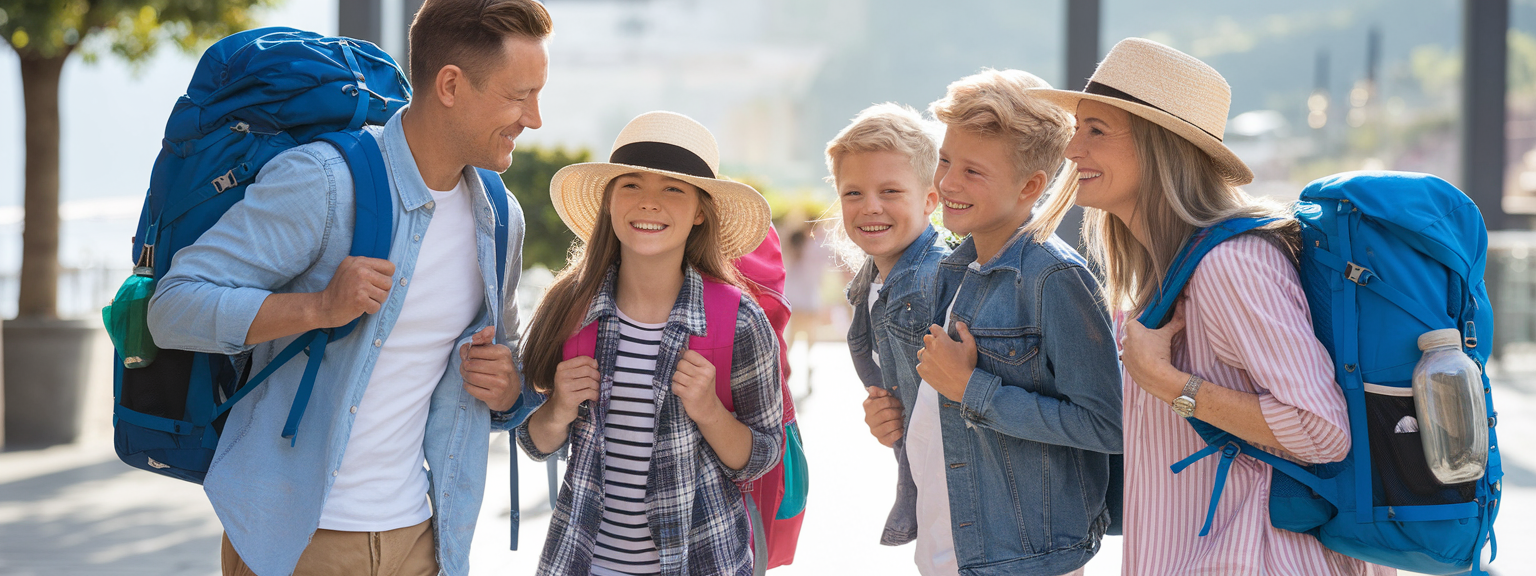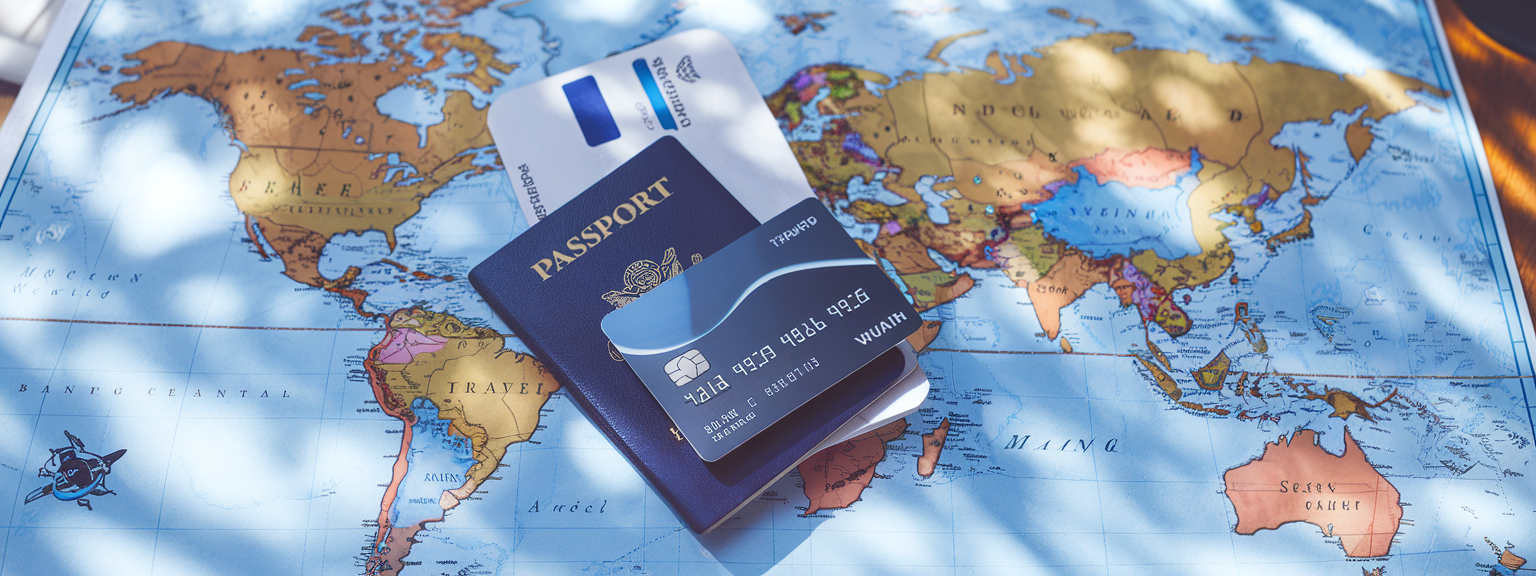Managing Travel Emergencies: Essential Tips for Safe and Smooth Travels
Travel, even when meticulously planned, can throw unexpected challenges your way. Whether it’s a lost passport, a missed flight, sudden illness, or a natural disturbance, managing travel emergencies is an essential skill for every adventurer. In this post, we delve into practical travel emergency tips, advice on assembling emergency kits, and guidance on how to navigate local emergency systems. If you’ve ever felt unprepared when an unexpected travel hiccup strikes, you’re not alone. By the end of this guide, you will confidently understand how to mitigate travel crises and stay safe wherever your journey leads.
📍Must-See Attractions: Essential Emergency Tools for Managing Travel Emergencies
Critical Items for Your Travel Emergency Kit
Being equipped with the right emergency tools is the cornerstone of managing travel emergencies. This section highlights the must-have items and indispensable resources that every traveler should include in their emergency kit. Armed with these items, you will be better prepared to handle unexpected travel issues.
- Travel Insurance Information: Always have your policy numbers, contact information, and instructions on how to activate your coverage. This is essential for quick recovery during unforeseen travel problems.
- Emergency Kits: A compact kit that includes a basic first aid supply, essential medications, and copies of important documents such as your passport and travel itinerary.
- Emergency Contacts: Keep a list of local embassy numbers, local emergency services, and travel assistance services. Having these numbers at your fingertips can save precious time during a crisis.
- Mobile Apps & Alerts: Download apps that provide real-time weather updates, local news, and safety alerts to stay informed throughout your journey.
Additionally, do not forget to pack a portable power bank and a set of universal adapters to ensure your devices remain charged during emergencies. An image of a well-organized emergency kit can serve as a visual reminder of what to pack:
🎭 Local Culture & Experiences: Local Support for Managing Travel Emergencies
Navigating Local Emergency Systems
Understanding how local communities respond during an emergency can significantly influence your travel experience. Many regions have unique systems and protocols which, if well-understood, can help you remain calm and take swift action when needed. Local emergency services operate differently across cultures, and learning a few key phrases in the local language—especially words like “help” or “emergency”—can bridge communication gaps in a crisis.
For example, travelers in parts of Asia might find that local street vendors or community leaders play a pivotal role in crisis management by offering immediate assistance and reliable advice. Similarly, in Europe, local authorities may offer rapid transport assistance or set up emergency shelters during tumultuous times. Familiarize yourself with regional etiquettes, such as how to respectfully approach local officials or community members during stressful situations. This proactive approach to local culture and emergency support is one of the key factors in effectively managing travel emergencies.
🔑 Hidden Gems & Insider Tips: Unique Strategies for Managing Travel Emergencies
Insider Strategies and Lesser-Known Resources
Beyond the standard emergency items, there are hidden gems and insider tips that can tip the scales in your favor when disaster strikes abroad. These strategies, often overlooked in conventional travel guides, can be invaluable if you find yourself thrust into a crisis situation.
- Digital Copies of Documents: Always keep digital backups of important documents like your passport, travel insurance, and emergency contacts. Upload these to a secure cloud service for instant access from anywhere.
- Budget-Friendly Emergency Accommodation: Research and bookmark affordable lodging options specifically geared toward emergency stays. Some hostels and hotels offer last-minute deals or safe-house services during local crises.
- Travel Gadgets: Invest in gadgets like GPS trackers, personal safety alarms, or even portable door locks that add an extra layer of personal security on the go.
- Trusted Online Resources: Join travel forums and networks where fellow travelers share real-time advice and travel crisis management tips.
By incorporating these insider tips, you transform your approach to managing travel emergencies from reactive to proactive. Not only do these hidden gems provide a safety net, but they also empower you to take control even when the unexpected occurs.
🗓️ Sample Itinerary or Day Plan: Crafting a Day Plan for Travel Emergencies
Step-by-Step Emergency Plan
Creating a sample itinerary for managing travel emergencies ensures you’re not caught off guard when time is of the essence. A well-devised plan outlines clear steps for evaluating your situation and mobilizing the appropriate resources. Here is a structured day plan to help guide your actions should an emergency arise:
- 0-15 Minutes: Recognize the emergency. Assess your surroundings and determine the level of risk. Secure your documents and emergency kit.
- 15-30 Minutes: Contact the necessary services. Reach out to local emergency contacts and notify your travel insurance provider.
- 30-60 Minutes: Relocate to a safe area if required. Use reliable transportation such as trusted rideshare services or vetted taxis.
- 1-2 Hours: Reconnect with family or friends. Inform someone about your situation and provide them with periodic updates.
- After 2 Hours: Evaluate and document the incident. Once safe, record details to improve your future emergency plans and assist with any insurance claims.
Adapting this timeline to local conditions and personal circumstances can greatly reduce stress and increase your overall safety during emergencies. If possible, create a printed version of your plan to keep with you as a backup resource.
💡 Travel Tips Specific to the Destination: Final Emergency Preparedness Tips
Last-minute Safety and Checklist Advice for Travelers
No matter where you travel, a few destination-independent tips can amplify your overall emergency preparedness. These travel safety pointers ensure that every adventurer remains vigilant and ready for any eventuality:
- Document Backup: Have extra copies of your tickets, passport, and other critical documents stored in a safe, separate location from the originals.
- Regular Safety Updates: Check local news and weather updates frequently to stay informed about any developing situations in your vicinity.
- Local Etiquette: Learn about destination-specific dos and don’ts during emergencies to avoid misunderstandings or unintended offenses.
- Pre-Departure Checklist: Use a comprehensive safety checklist before departing—this should include verifying your emergency contacts, confirming the functionality of your emergency gadgets, and double-checking your travel insurance details.
These travel tips not only enhance your readiness for unexpected issues but also build a resilient mindset that transforms how you approach travel safety on a daily basis.
Bringing It All Together: Final Thoughts on Managing Travel Emergencies
Conclusion & Call to Action
Incorporating these comprehensive strategies into your travel plans is crucial for managing travel emergencies with confidence. By understanding local systems, assembling a robust emergency kit, and creating a clear emergency plan, you can minimize stress and enhance your safety during unexpected travel issues. Remember, preparedness is the key to turning travel crises into manageable challenges.
We invite you to subscribe to our newsletter for more insider tips, detailed emergency kit recommendations, and expert crisis management strategies. Together, we can build a community of prepared and confident travelers ready to face any challenge head-on.







